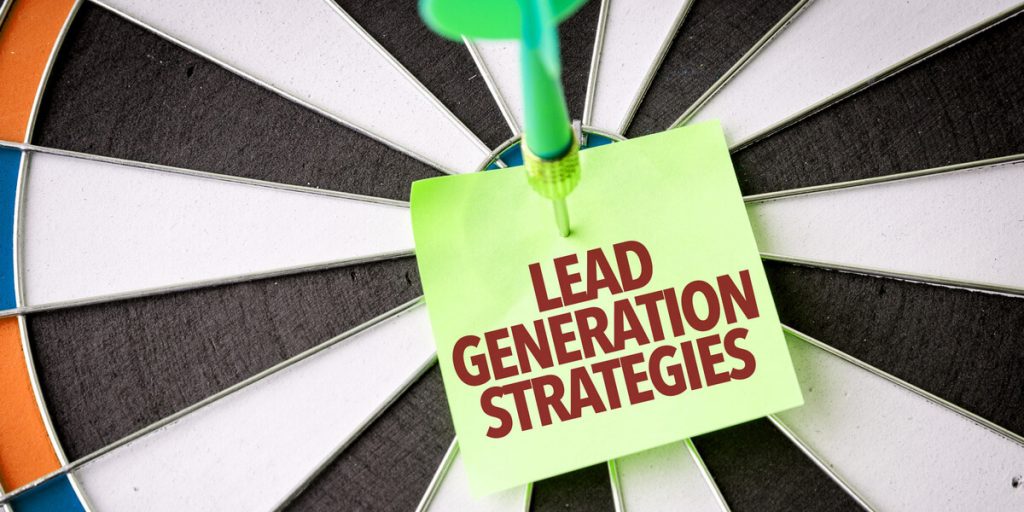Facebook marketing for real estate agents: Learn proven ad strategies, targeting tips, and content ideas to attract more buyers and sellers.
Content Marketing Lead Generation Seller Tactics
Facebook offers tools that allow real estate agents to reach people in specific locations, showcase listings, and track how users interact with ads and posts.
As of 2023, Facebook had over 2.1 billion active users, of which a large percentage uses Facebook to stay connected with their community, follow local businesses, and explore housing content. For real estate agents, Facebook provides both organic and paid options to connect with buyers and sellers. It also supports detailed targeting tools that help agents reach people based on geography, interests, and online behavior.
Why Facebook Matters for Real Estate Success
Facebook is used by 70% of U.S. adults, according to Pew Research Center. More than three-fourths of these users visit the platform daily. This widespread use makes Facebook a valuable channel for reaching homebuyers and sellers across age groups and income levels.
Facebook offers targeting features that allow real estate agents to reach audiences by zip code, city, or neighborhood. It also supports retargeting, which means showing ads again to people who previously visited your website or engaged with your content.
Real estate agents often use Facebook to promote listings, generate leads, and build brand recognition. Facebook Ads can be cost-efficient when compared to traditional marketing methods such as mailers or print ads.
Key benefits include:
- Local Targeting: Reach users in specific geographic areas, such as neighborhoods, zip codes, or cities.
- Visual Showcasing: Post high-quality photos and videos to highlight interior and exterior property features.
- Cost-Effectiveness: Facebook ads often cost less per impression or click than traditional advertising formats.
When getting started with Facebook marketing, you’ll encounter a few important terms:
- Facebook Business Manager is the platform used to manage your business presence across Facebook and Instagram.
- Facebook Ads Manager is the tool used to create and analyze paid ad campaigns.
- The Special Ad Category is a required setting for real estate ads that ensures compliance with fair housing laws.
How to Set Up High-Converting Facebook Ads for Real Estate
1. Create a Facebook Business Page
To create a Facebook Business Page for real estate, log into your personal Facebook account, scroll through the lefthand menu, and select the “Pages” section. From there, click “Create new Page.” Enter your business name, category (Real Estate Agent), and a short description.
Use a professional headshot for your profile image and a high-quality photo of a listing or your team for the cover image. Your cover photo should be 820 x 360 pixels for the best display.
Complete these essential sections:
- Contact information: Add your phone, email, and website
- Business hours: List when clients can reach you
- About section: Include keywords like your city name and “real estate expert”
A complete profile helps potential clients find you through Facebook search and builds credibility when they visit your page.
2. Use the Special Ad Category
The Special Ad Category is a Facebook requirement for housing-related ads. This setting exists to prevent discrimination in housing advertising and comply with fair housing laws.
When creating a real estate ad campaign, you’ll need to select “Housing” under the Special Ad Category section. This setting limits certain targeting options. For example, you can’t target by:
- Age
- Gender
- ZIP code (you must use radius targeting instead)
While these limitations may seem restrictive, they ensure your ads comply with fair housing regulations and prevent your account from being flagged.
3. Choose the Right Ad Format
Facebook offers several ad formats that work well for real estate:
- Carousel Ads: Perfect for showcasing multiple rooms in one property or several listings in one ad
- Video Ads: Ideal for property walkthroughs and neighborhood tours
- Lead Form Ads: Collect contact information directly within Facebook
For new listings, carousel ads work exceptionally well because they allow potential buyers to swipe through multiple photos. For open houses, single image or video ads with clear date and time information tend to perform best.
When creating video content, keep it under 60 seconds for feed ads. Videos should start with an attention-grabbing first 3 seconds since most users scroll quickly through their feeds.
4. Craft Engaging Ad Copy
The text in your Facebook ads needs to be clear, concise, and compelling. Start with a headline that highlights a key property feature or benefit.
For example, instead of “New Listing in Oakwood,” try “Spacious 4-Bed Home With Mountain Views in Oakwood.”
Your ad description should include:
- Specific property details (bedrooms, bathrooms, square footage)
- One or two standout features
- A clear call to action
Keep paragraphs short—no more than 1-2 sentences each. Facebook users typically skim content, so make every word count.
A strong call to action might be “Schedule a showing this weekend” or “Download our free home buyer’s guide.” Be specific about what action you want the user to take.
5. Set a Manageable Budget and Schedule
For new real estate agents on Facebook, start with a modest budget of $300-500 per month. This allows you to test different ad formats and audiences without overspending.
Daily budgets work well for ongoing campaigns like brand awareness, while lifetime budgets are better for time-sensitive promotions like open houses.
Here’s a simple budget framework:
| Campaign Type | Recommended Budget | Duration |
|---|---|---|
| New Listing | $15-20/day | 7-10 days |
| Open House | $100 lifetime | 3-5 days |
| Buyer/Seller Guide | $10/day | 14+ days |
Most real estate Facebook ads perform best when scheduled for weekday evenings (6-9 PM) and weekend mornings. Facebook’s algorithm will optimize delivery based on when your audience is most active.
Advanced Targeting Strategies for Real Estate Lead Generation
1. Leverage Location and Interest Filters
While the Special Ad Category restricts some targeting options, you can still use location targeting effectively. Instead of targeting specific ZIP codes, use the radius targeting feature to focus on areas where you want to generate leads.
For example, you might target a 15-mile radius around a popular neighborhood or city center. This reaches people who live in or are interested in that area.
You can also use interest targeting to reach potential buyers and sellers. Some effective interest categories include:
- Home improvement
- Interior design
- First-time buyer
- Real estate
Combine location targeting with these interests to create a focused audience that’s more likely to engage with your real estate content.
2. Retarget Website Visitors
One of the most powerful Facebook marketing strategies is retargeting people who have already shown interest in your services by visiting your website.
To set this up, you’ll need to install the Meta Pixel on your website. This small piece of code tracks visitors and allows you to show them ads later on Facebook.
The process works like this:
- Install the Meta Pixel on your website (found in Meta Events Manager)
- Create a custom audience of people who visited specific pages
- Create an ad campaign targeting this custom audience
For real estate, consider creating separate retargeting audiences for people who viewed listing pages versus those who looked at buyer or seller resources. This allows you to show them ads that match their specific interests.
Retargeting typically produces higher conversion rates because you’re reaching people who already know your brand and have shown interest in real estate.
3. Use Lookalike Audiences
Lookalike audiences help you find new prospects who share characteristics with your existing clients. This powerful tool analyzes your current audience and finds similar users.
To create a lookalike audience:
- Upload a list of past clients as a custom audience
- Select “Create Lookalike Audience” in Ads Manager
- Choose your source audience and location
- Select an audience size (1-10%)
For real estate, smaller percentages (1-2%) typically work best as they include users who most closely match your existing clients. As you expand to larger percentages, the audience becomes broader but less precise.
A good source audience should include at least 100 people with complete contact information. The more information you provide (email, phone, address), the better Facebook can match your audience.
Organic Techniques to Grow Real Estate Facebook Leads
1. Engage in Local Facebook Groups
Local Facebook groups offer a free way to connect with potential clients in your area. These groups focus on community issues, local events, and neighborhood discussions.
Start by searching for groups in your target areas using keywords like “[City Name] Community” or “[Neighborhood] Residents.”
When participating in these groups:
- Answer real estate questions helpfully without being promotional
- Share relevant local news that affects property values
- Post about community events you’re attending
The key is to provide value and build relationships. Direct promotion often violates group rules and can damage your reputation.
For example, instead of posting “Check out my new listing!” try sharing a market update: “Home prices in Oak Hills increased 5% last month. Happy to answer questions about what this means for homeowners.”
2. Share Testimonials and Reviews
Client testimonials build trust with potential customers. After closing a transaction, send a simple message to clients asking for a review. Keep your request short and make it easy for them to complete.
Once you collect reviews, showcase them in your regular content. Create simple graphics with client quotes or share screenshots of positive reviews. This social proof helps new prospects feel confident in your services.
When responding to reviews:
- Thank the reviewer personally
- Add a specific detail about working with them
- Keep responses professional and concise
Even negative reviews deserve a thoughtful response. Address concerns calmly and offer to continue the conversation privately.
3. Use Video Content Effectively
According to Wyzowl, 51% of people are more likely to share videos than any other type of content. On Facebook, videos receive higher engagement and reach than static posts.
For real estate agents, effective video content includes:
- Property walkthroughs
- Neighborhood tours
- Market update discussions
- Client success stories
You don’t need professional equipment—a smartphone with good lighting is enough to get started. Keep videos under 2 minutes for regular posts, and use captions since many users watch without sound.
Facebook Live is particularly powerful for real estate. These real-time broadcasts receive 3x more engagement than regular videos. Consider hosting a weekly Live session answering common real estate questions or showcasing new listings.
Measuring and Optimizing Real Estate Facebook Ads ROI
1. Track the Right Metrics
To determine if your Facebook marketing is working, focus on these key metrics:
- Cost Per Lead (CPL): The amount you spend to generate one lead
- Click-Through Rate (CTR): The percentage of people who click your ad after seeing it
- Conversion Rate: The percentage of clicks that result in a lead form submission
For real estate, a good CPL typically ranges from $5-25 depending on your market. CTRs above 1% generally indicate strong ad performance.
Set up conversion tracking by installing the Meta Pixel on your website and creating custom conversions for important actions like form submissions or listing inquiries.
Review your metrics weekly and look for trends. If your CPL suddenly increases or your CTR drops, it may be time to refresh your ad creative or adjust your targeting.
2. Test Different Ad Versions
Split testing (also called A/B testing) compares different versions of your ads to see which performs better. This helps you continuously improve your results.
Elements worth testing include:
- Different property images or videos
- Headline variations
- Various calls to action
- Ad formats (carousel vs. single image)
When running tests, change only one element at a time so you know exactly what caused the performance difference. Run each test for at least 7 days to gather enough data.
For example, you might test two identical ads with different headlines: “Luxury Waterfront Home Just Listed” versus “5-Bed Waterfront Home With Private Dock.” After a week, you can see which headline generated more leads at a lower cost.
Elevate Your Results with a Tailored Marketing Partner
Many successful real estate agents partner with marketing experts to manage their Facebook campaigns. This makes sense when you’re busy with clients and don’t have time to keep up with Facebook’s constantly changing features.
A good marketing partner understands real estate-specific challenges like fair housing compliance and seasonal market fluctuations. They should provide regular reporting on lead quality, not just quantity.
AgentFire’s website platform integrates seamlessly with Facebook marketing. Our system includes built-in Meta Pixel support, making it easy to track conversions and build retargeting audiences from your website visitors.
Our hyperlocal content features, like neighborhood guides and property search tools, give you valuable pages to direct Facebook traffic toward. These pages help convert social media visitors into leads by providing the local information they’re searching for.
FAQs About Facebook Marketing for Real Estate Agents
How much should real estate agents budget for Facebook ads?
Most successful real estate agents start with $300-500 monthly for Facebook ads, adjusting based on lead quality and conversion rates after the first 30 days.
What types of Facebook content generate the most leads for real estate agents?
Video property tours, local market updates, and client success stories consistently outperform other content types for real estate agents on Facebook.
How can real estate agents comply with fair housing laws on Facebook?
Always use Facebook’s Special Ad Category for housing-related ads, avoid language that could exclude protected groups, and focus on property features rather than describing ideal buyers.
How long does it take to see results from Facebook real estate marketing?
Most real estate agents see initial results within 2-4 weeks, but building a consistent lead generation system typically takes 3-6 months of testing and optimization.
How can I integrate my real estate CRM with Facebook leads?
Most major real estate CRMs offer direct Facebook lead integration through Zapier or native connections; check your specific CRM’s documentation for setup instructions.



